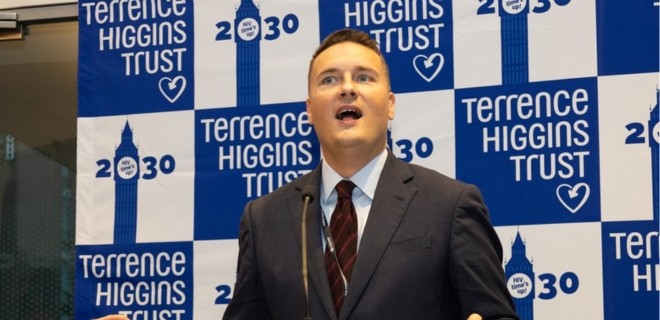The number of new diagnoses is rising, both amongst gay, bisexual and other men who have sex with men, as well as heterosexual men and women. People from ethnic minorities from both these groups were disproportionately impacted, with new diagnoses rising fastest in these groups. Increases were concentrated outside of London – the capital saw a 9% increase in diagnoses amongst heterosexual men, but outside of London there was a 51% increase.
Late diagnosis remains a significant issue, with 40% of people diagnosed with HIV in 2023 diagnosed at a late stage (when HIV has already started to damage the immune system). The increase in late diagnosis since 2022 was disproportionately high among Black people (40% increase).
The data showed some progress in getting back to pre-COVID levels of testing within sexual health services, but they are still 4% lower than pre-COVID levels overall. Testing among gay and bisexual men is at record levels – 34% increased since 2019 – but for heterosexual men testing rates are still 22% lower.
PrEP, a drug taken by HIV-negative people to prevent them from getting HIV, is a key tool in reducing new HIV cases. The UKHSA’s statistics show the number of people accessing PrEP rose in 2023 which is very welcome. It also showed a continued disparity in uptake among communities. Gay, bi and other men who have sex with men who were identified as having a PrEP need were far more likely to initiate or continue taking PrEP (75%) compared to heterosexual men (39%) or heterosexual and bisexual women (41%).
Richard Angell, Chief Executive at Terrence Higgins Trust, said: 'As Health Secretary Wes Streeting said last week, we’re not on track for the Government’s 2030 goal of ending new HIV cases in the UK, but that doesn’t mean it can’t be done. Today’s new figures show people from ethnic minorities face an increasing burden of HIV, with rising diagnoses and worse health outcomes than the population as a whole. Recent strong progress among gay, bisexual and other men who have sex with men seems to have stalled. And almost across the board, the picture is worse for those living outside of London, where resources are most limited.
'Today’s figures are a call-to-action: we need innovation and new resources to address these health inequalities and reach the 2030 goal. Time is of the essence.'
The data showed an increase in people who are newly diagnosed in England, but who have previously been diagnosed abroad. 96% of this group were linked to care within 3 months of being diagnosed in England.
Kate Nambiar, Medical Director at Terrence Higgins Trust, said: 'Many of the new diagnoses in this dataset are people first accessing care in the UK with a known diagnosis, who are already on medication and are virally suppressed. It’s important people don’t get the wrong impression about what that means for our healthcare system – those who are virally suppressed when they arrive in England cannot pass on HIV to sexual partners. The way we discuss and label data hugely shapes how people understand it, and it’s important UKHSA look again at how this data is described to be as clear as possible, so the public understand where resources need to be directed.'



